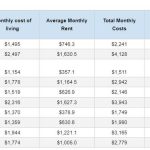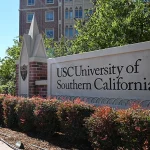by Peter Martino
April 17, 2014 at 4:00 am
Europe’s biggest failure vis-à-vis Turkey is another example of its unwillingness to face unwelcome truths: that whenever Islamists go into politics, they never turn out to be moderates.
EU leaders are now, belatedly, coming to realize that Erdogan is not their friend.
Last week, German politician David McAllister, the leading candidate of Chancellor Angela Merkel’s Christian Democratic Union (CDU) for next month’s European Parliament election, had a message for Turkish Prime Minister Recep Tayyip Erdogan. There is no room in the European Union, McAllister said, for "the Erdogan Turkey of 2014." The politician, whose father was Scottish, is the former Prime Minister of Lower Saxony, Germany’s second largest state, and a heavyweight in Merkel’s party.
The CDU has always been ambivalent about Turkey’s EU membership. Like other major parties in Germany, the CDU hopes to attract the votes of the growing number of Germans of Turkish origin, while, at the same time, the party is well aware that a majority of indigenous Germans oppose Turkey’s entry into the EU.
Europe’s political leaders have been promising the Turks EU membership for decades. The recent actions of Turkish Prime Minister Erdogan, however, offer the CDU a perfect excuse to distance itself from Turkey at a moment when it is politically expedient to do so. Whenever national elections are due, it is always electorally advantageous to cater to the Turkish vote. However, when European elections are due and parties need to convince as many indigenous voters as possible to turn out and vote, it is rewarding to speak out against Turkey. Lambasting "the Erdogan Turkey of 2014" is then an opportunity not to be missed.
"The Erdogan Turkey of 2014 has moved further away from the standards of the European Union," McAllister said, referring to Erdogan’s recent ban of Twitter and YouTube in Turkey. The bans were prompted by postings referring to corruption and abuse of power by Erdogan cronies.
"The current assault on freedom of expression [in Turkey] in no way conforms with European standards," McAllister said. He is right, of course. However, one wonders why the CDU is suddenly disturbed by the "current" assault, while it has been common knowledge for years that the Erdogan regime does not respect freedom of expression. The Erdogan Turkey of 2012 held the world record for jailing journalists, but that did not seem to bother the CDU much at the time.
 Turks protesting the jailing of journalists. (Image source: Committee to Protect Journalists) Turks protesting the jailing of journalists. (Image source: Committee to Protect Journalists) |
Also last week, the Netherlands, whose Prime Minister Mark Rutte is a close ally of German Chancellor Merkel, decided to lobby the EU for the suspension of EU funds to Turkey. Here, too, the reason for the sudden Dutch concern is said to be Turkey’s treatment of Twitter and YouTube.
Europe’s, and in particular Germany’s, exasperation with Erdogan’s Turkey, however, has a deeper cause than the EU’s concern for ordinary Turks’ access to social media outlets. Germany, which for over a century has been a traditional ally of Turkey, is simply responding to the cooling of Turkey’s affection for Berlin. Ankara seems to be no longer interested in close links with a Europe that is becoming increasingly irrelevant in world politics.
That, too, became apparent last week. Indeed, writing for a pro-government Turkish newspaper, Erdogan’s chief economic advisor, Yigit Bulut, explained last week that Europe is rapidly losing its political and economic importance in the world. Bulut said that the United States is currently the sole representative of Western values, while Europe no longer matters. He consequently called on Turkey to "end the relations with Europe," adding "we don’t need [the EU] anymore."
Bulut’s views come as no surprise. In August last year, Bulut declared that there are only two-and-a-half leaders in the world who really matter. The two leaders are Erdogan and Russian President Vladimir Putin, the "half-leader" is U.S. President Barack Obama.
In last week’s op-ed piece, Bulut wrote: "In the new equation, the new West for Turkey means only the U.S. We no longer need Europe and its material and moral affiliates which may become a burden to us." Last March, Turkey’s Economy Minister Nihat Zeybekci already announced that by June, Turkey is going to re-open the negotiations about its 1996 Customs Union Agreement with the EU. The Customs Union Agreement is a prerequisite for EU membership, but Zeybekci claims the agreement restricts the competitiveness of Turkey’s exports. The global potential of Turkey’s exports outweighs the eventual benefits of EU membership. This analysis is not very different from that of British diplomat Iain Mansfield, who last week published a report arguing that a British exit from the EU – the so-called Brexit – could lead to greater trade with emerging economies and, hence, an increase of the British GDP. Last February, another report reached similar conclusions regarding Nexit – a Dutch exit from the EU.
The way in which the EU has mismanaged the crisis in the Ukraine, creating the situation which allowed Putin to annex Crimea and leaving a diplomatic and geopolitical mess which the Americans now have to solve, will only have reinforced Ankara’s view that the EU is powerless.
But Europe’s biggest failure vis-à-vis Turkey is another example of its unwillingness to face unwelcome truths. Ironically, this unwillingness has so far benefitted Erdogan, although it did not lead him to respect the EU.
The truth, which Europe fails to confront, is that whenever Islamists go into politics, they never turn out to be moderates. For years, EU leaders such as Merkel saw Erdogan and his Islamist AKP party as the proof that there was a moderate political Islam. They are now, belatedly, coming to realize that he is not their friend. They hope that he will lift his ban on the social media, so that they can welcome him back into their midst, but they refuse to see that his agenda is one of Islamic imperialism. And that the only politicians whose power he fears are Putin’s and, to half of that, Obama’s.
A world where Turkey no longer respects, let alone fears, Europe, is a more dangerous world than one in which the opposite was the case. David McAllister announced on Merkel’s behalf that there is no room for the Erdogan Turkey of 2014 in the European Union. The really sad thing, however, is that there is no longer any room for Europe and its values in contemporary Turkey. And Europe is at least as much to blame for that situation as Recep Tayyip Erdogan.











